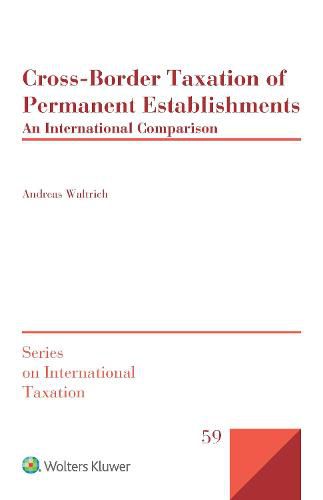Readings Newsletter
Become a Readings Member to make your shopping experience even easier.
Sign in or sign up for free!
You’re not far away from qualifying for FREE standard shipping within Australia
You’ve qualified for FREE standard shipping within Australia
The cart is loading…






Series on International Taxation Volume 59
The permanent establishment (PE) is a legal form of cross-border direct investment whereby a business presence is maintained as an integral part of the foreign investor. Due to the growing intensity and complexity of international business relations, the PE definition and the allocation of profits between head units and PEs have become highly contentious, especially from the perspectives of the major emerging economies of the BRIC countries (Brazil, Russia, India, and China). Unsurprisingly, the potential for tax avoidance and the scrutiny of tax authorities have increased enormously. Against this background, this work illustrates and compares the OECD Model Tax Convention with country-specific source taxation rules, focusing on possible tax system changes and offering reform proposals.
Emphasizing the taxable implications of the various rules upon country-specific PE concepts, the author’s treatment covers such issues and topics as the following:
the PE definition of the OECD MC and from the perspective of selected countries;
allocation of business profits under the Authorised OECD Approach (AOA);
avoidance of PE status;
implementation of a service PE proposal;
construction site PEs established by subcontractors;
existence of an agency PE; and
the OECD project on Base Erosion and Profit Shifting (BEPS).
The author uses simulated cross-border national and treaty cases to highlight qualification conflicts, thus reinforcing his detailed discussion of source taxation rules of business profits and relevant case law in Germany, the United States, and the BRIC states. There is also a checklist detailing how companies can avoid unintentionally setting up a PE.
The author’s deeply informed proposals provide much-needed guiding tax criteria and open the way to greater feasibility and transparency in PE taxation. Because the definition of PEs has enlarged and the treatment of profit allocation has become more complex, the clarification of the PE concept presented in this book is of inestimable importance for lawyers, officials, policymakers, and academics concerned with international business taxation in any jurisdiction.
$9.00 standard shipping within Australia
FREE standard shipping within Australia for orders over $100.00
Express & International shipping calculated at checkout
Series on International Taxation Volume 59
The permanent establishment (PE) is a legal form of cross-border direct investment whereby a business presence is maintained as an integral part of the foreign investor. Due to the growing intensity and complexity of international business relations, the PE definition and the allocation of profits between head units and PEs have become highly contentious, especially from the perspectives of the major emerging economies of the BRIC countries (Brazil, Russia, India, and China). Unsurprisingly, the potential for tax avoidance and the scrutiny of tax authorities have increased enormously. Against this background, this work illustrates and compares the OECD Model Tax Convention with country-specific source taxation rules, focusing on possible tax system changes and offering reform proposals.
Emphasizing the taxable implications of the various rules upon country-specific PE concepts, the author’s treatment covers such issues and topics as the following:
the PE definition of the OECD MC and from the perspective of selected countries;
allocation of business profits under the Authorised OECD Approach (AOA);
avoidance of PE status;
implementation of a service PE proposal;
construction site PEs established by subcontractors;
existence of an agency PE; and
the OECD project on Base Erosion and Profit Shifting (BEPS).
The author uses simulated cross-border national and treaty cases to highlight qualification conflicts, thus reinforcing his detailed discussion of source taxation rules of business profits and relevant case law in Germany, the United States, and the BRIC states. There is also a checklist detailing how companies can avoid unintentionally setting up a PE.
The author’s deeply informed proposals provide much-needed guiding tax criteria and open the way to greater feasibility and transparency in PE taxation. Because the definition of PEs has enlarged and the treatment of profit allocation has become more complex, the clarification of the PE concept presented in this book is of inestimable importance for lawyers, officials, policymakers, and academics concerned with international business taxation in any jurisdiction.